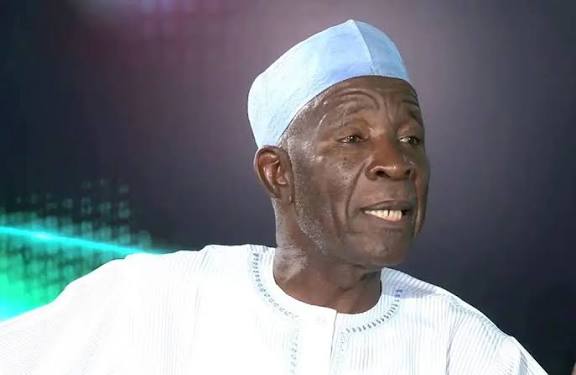/ Politics
Views: 411
"Those Who Pay the Piper": Galadima reveals why INEC won’t sanction politicians

Fresh concerns have emerged over the independence of the Independent National Electoral Commission (INEC) following claims by Buba Galadima, a chieftain of the New Nigerian Peoples Party (NNPP), who accused the commission of deliberately failing to call politicians to order over early campaigning violations.
In an interview, Galadima alleged that INEC, though constitutionally empowered to regulate political conduct, has been rendered powerless by the very political establishment it is supposed to supervise. He pointed to the ruling All Progressives Congress (APC) as the first to disregard campaign timelines, setting a precedent that INEC has so far refused to challenge.
“In the last six months, I have repeatedly raised concerns about INEC’s inability to act,” Galadima said during the interview. “Unfortunately, it has become clear that they cannot call politicians to order, since the government of the day set the precedent.”
Suggesting a deeper problem of political capture within the electoral body, Galadima added, “Those who pay the piper dictate the tune,” implying that INEC may be beholden to the political elite rather than to the electorate.
The comments have sparked renewed scrutiny over INEC’s capacity to enforce electoral laws impartially, especially as preparations quietly begin for the 2027 general elections. Critics argue that the agency’s silence on ongoing political violations reinforces growing doubts about its neutrality and raises fears of a compromised process in the years ahead.
Amid these concerns, the Peoples Democratic Party (PDP) has also called on INEC to fully implement the provisions of the Electoral Act regarding the electronic transmission of results. Speaking at a press conference in Abuja, PDP National Publicity Secretary, Debo Ologunagba, accused the commission of aiding electoral malpractice through its failure to uphold existing legal standards.
“We will resist any attempt to manipulate the process or undermine the will of Nigerians,” Ologunagba warned, citing what he called the “institutional manipulation” of past elections.
The PDP referenced Sections 64 (4), (5), and (6) of the Electoral Act 2022, which require that election results be recorded and transmitted directly from polling units using the smart card reader or any other electronic device approved by INEC.
The call comes in the wake of INEC’s own admission that “glitches” affected the real-time transmission of results during the 2023 presidential election, a failure that triggered nationwide criticism and damaged public confidence in the process. Although the commission attributed the issue to technical difficulties, the opposition continues to insist that the breakdown may have been intentional.
With early political maneuvering already underway and INEC largely silent, both analysts and opposition voices are warning that unless decisive reforms are undertaken, the credibility of the 2027 elections may already be at risk.